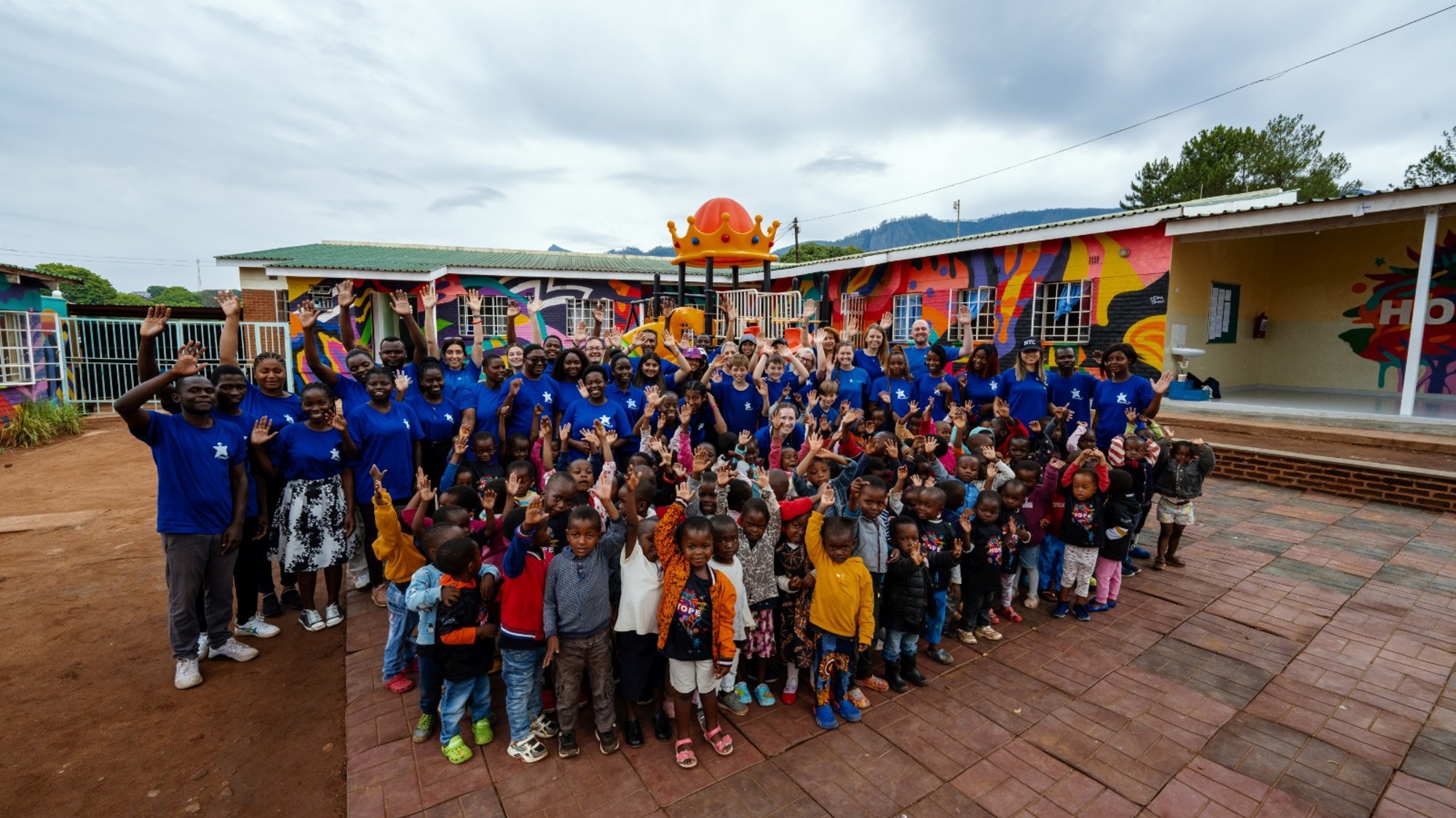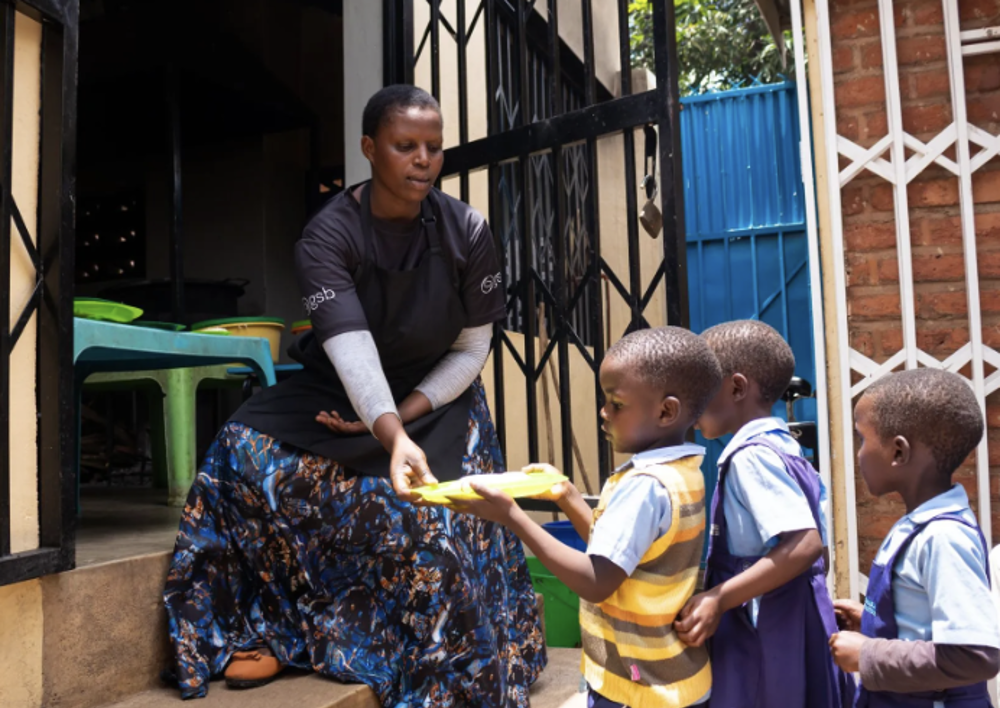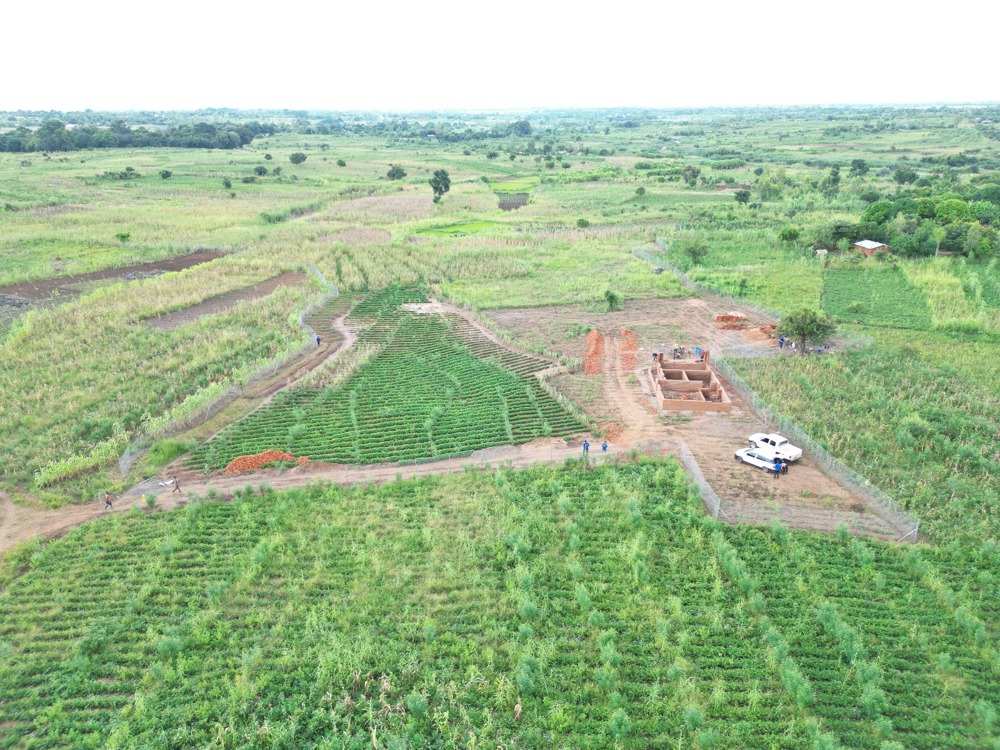Stop the tick-box giving
Sparkle Foundation’s Sarah Brook on why we need different models for nonprofits if we want to deliver real impact
Wednesday, 18 June 2025

Sparkle Foundation’s Sarah Brook on why we need different models for nonprofits if we want to deliver real impact
Wednesday, 18 June 2025

 Sarah E. Brook is a Dubai-based humanitarian, international speaker, and the founder of The Sparkle Foundation, a grassroots charity transforming lives in Malawi through education, health, nutrition, and community-led programmes. She set up the charity after surviving a life-threatening illness in Malawi, an experience that shaped her purpose and resolve to ensure no child is left behind. A former BBC sports journalist, Sarah has a master’s in Sustainable Development, and offers advisory services to philanthropists, corporations, foundations and NGOs.
Sarah E. Brook is a Dubai-based humanitarian, international speaker, and the founder of The Sparkle Foundation, a grassroots charity transforming lives in Malawi through education, health, nutrition, and community-led programmes. She set up the charity after surviving a life-threatening illness in Malawi, an experience that shaped her purpose and resolve to ensure no child is left behind. A former BBC sports journalist, Sarah has a master’s in Sustainable Development, and offers advisory services to philanthropists, corporations, foundations and NGOs.
In a region defined by ambition, innovation, and generosity, the Middle East has the chance to lead a new era of philanthropy - bold, strategic, and transformational. But first, let’s be honest: too much of modern giving is performative, prescriptive, and dangerously passive.
From the moment I arrived in the UAE in 2013, I saw that this nation takes impact seriously through Zakat, collective responsibility, and a deep-rooted culture of care. Yet, after nearly two decades in this sector, I’m still watching the same patterns repeat.
Global humanitarian gaps now sit at US$57bn. And while billions are raised in Zakat, Ramadan pledges, corporate grants, and philanthropic funds, so much of it remains fragmented, untracked, and disconnected from long-term change.
Why? Because giving has become about visibility, not viability. It's all about a big cheque, a branded T-shirt, or a social post from a clean-up. But what happens when the borehole breaks? When the teacher isn’t paid? When the project fades and no one is left to be held accountable?
Just look at the collapse of major aid pipelines - US aid slashed, charities closing, donor trust declining. Yet still - we pretend this model works.
"Too much of modern giving is performative, prescriptive, and dangerously passive."
This is why Sparkle Foundation exists. Not to add to the noise. Not to be another charity doing the same thing, slightly differently - but to change the system.
The Sparkle Foundation runs education, health, nutrition, and community programmes for orphans, vulnerable children, and their communities in Malawi - with community engagement at the heart of everything we do.
Since launching in 2015, we’ve impacted more than 30,000 lives through our scalable, best-practice operating model - active across four registered sites, with a fifth now fully self-operational after just three years of local training and capacity building.
To date, we’ve educated 5,000 children, provided 258,000 meals, delivered 26,963 medical treatments, empowered 48 communities, and engaged 500 volunteers from 88 countries.
With 62 dedicated staff and a farm that helps fund our feeding programme, we’re building sustainable systems from the ground up through a mix of donations and social enterprise.

Providing nutritious food gives young children the best start in life.
Let’s not forget: the nonprofit sector is the second largest industry in the world - yet we don’t treat it like a business; we underfund leadership, undervalue infrastructure, and fear transparency because it might cost us funding.
The result? Dependency, politicised aid, burnout, and broken delivery. And worst of all - silence. Speak out about misuse of funds, and you risk blacklisting, reputational damage, or being shut out. How are we meant to improve if failure becomes fatal?
At Sparkle, we’ve chosen a different path. We don’t claim to be experts in everything. But we bring together people who are. We’ve built an operating model that lasts - and scales. With AI and real-time data - not just metrics for donor reports - we track outcomes, predict needs, train local leaders, and build resilient systems that work.
But systems like this require trust - and funding. Let’s be real: you wouldn’t buy a house without surveying the land or checking the structure. So why would you invest in a charity without doing the same?
During my time auditing organisations out in the field, I often find polished websites hiding poor delivery - and staff bound by NDAs. That’s not charity. That’s PR. It’s time to give differently.

Sparkle runs a farm in Malawi to support the community in a holistic way.
Think like a venture capitalist
When VCs invest, it’s not just about numbers. It’s about the founder. Their why, values, and resilience. Because when things get tough - and they will - that’s what holds everything together.
Charity is no different. You shouldn’t fund something because it’s trending, or support a project if you don’t believe in the people behind it. Ask the hard questions, but also ask what they need to succeed. If you have expertise - offer it. If you don’t - trust those who do.
And please - stop punishing people for building effective organisations. Impact requires infrastructure. It needs administration, leadership, salaries, and systems.
At Sparkle, we don’t burn out our people, we build them up. We say no to partners who don’t respect our team. And we build with communities, not for them.
In Malawi, we’re creating jobs, training youth, building schools and – crucially – systems, as well as running social enterprises. We’ve turned volunteers into changemakers, donors into ambassadors, and families into movements.
Yes, we have made mistakes and yes, we’ve had setbacks. But because our partners treat us like a serious business, we can be honest. We can go back to the drawing board and improve. That’s real accountability.
We now work with donors and companies who care less about logo placement—and more about legacy.
So here’s my ask:
This isn’t charity 1.0. This is a movement. If we want to close the gap, build resilience, and drive systemic change - we need to fund differently, act differently, and lead differently.
It's a good idea to use a strong password that you're not using elsewhere.
Remember password? Login here
Our content is free but you need to subscribe to unlock full access to our site.
Already subscribed? Login here